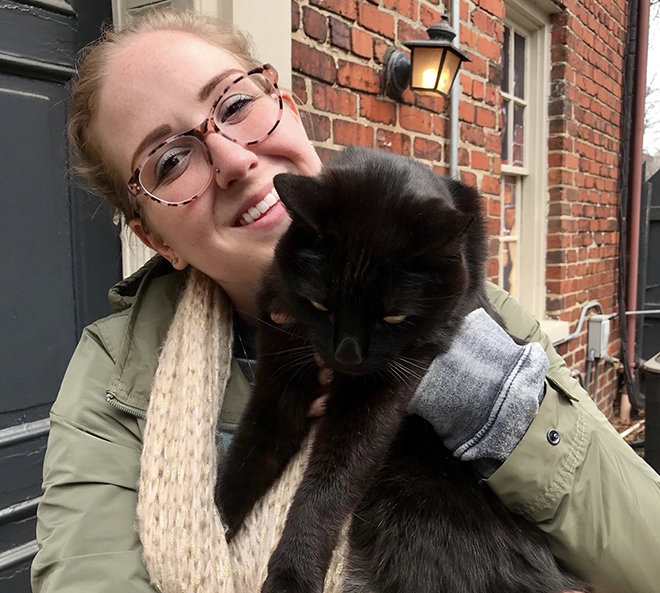If Stephanie Schramm Little had not been attending Minnesota State Mankato, she wouldn’t have had the precious final days with her sister-in-law.
Nor would she have pursued a track of social work that she today calls nothing less than “my entire world.”
The two events converged several months after Little enrolled in 2014 to pursue a master’s degree in social work, thinking she’d wind up as a counselor. Instead, Little became a social worker in Bismarck, N.D., who tends exclusively to kidney transplant patients. It’s a rare job, one of only two in the state. So it’s busy and multi-faceted as she works with patients from the time they go on the waiting list to after they’ve had the transplant.
During her first year of graduate school a couple of things happened. One was professor Nancy Fitzsimons, for whom Little worked a research student. Fitzsimons inspired the grad student to focus and advocate community-wide.
“She encouraged me to go to board meetings. She encouraged me to go to local community meetings. She pushed for me to advocate for people,” Little explained. “She helped me co-write things so I was able to present at these organization meetings. She was so influential on my life.”

While that change in focus was occurring, Little’s sister-in-law stayed with her while being treated at the University of Minnesota for cancer. Long before the two became family members, the sister-in-law received a heart transplant at age 5. She lived with the transplant until age 24, at which point she died from cancer. Little was able to be with her during those final months.
After graduating in 2015, she worked as a psychotherapist for the state prison system and the United Tribes Technical College in Bismarck.
“Doing psychotherapy there was one of the best steps I could have taken,” she said. “And then, transferring that into the position I have now.”
By that point she had become a member of the Patient Affairs Committee with the United Network for Organ Sharing (UNOS.) The perspective that provided by way of first-hand accounts of struggles getting insurance and medication cemented her calling.
“The entire cycle is just—it’s not in support of transplant patients, I’ll put it that way. Seeing all that really pushed me to want to make changes in the community. And to make sure people knew more about transplant in general.”
Her workload on the day she’s asked consists of 90 people on the transplant list, and 175 more on the post-transplant list. She works with them all, at all stages pre- and post-transplant.

“One of the biggest things I work with people on is feelings of resentment,” she said. “They may have family members who are healthy and capable of giving a kidney. Everyone has their reasons and it’s their decision if they want to do a living donation or not. That’s completely individual for each person. But as someone who’s chronically ill and possibly on dialysis, seeing healthy members flourish when they have two working kidneys can cause a lot of internal conflict with people. So that’s a big thing I work with.”
Little is also pursuing a Ph.D. in health sciences in a dual degree plan with a master’s of public health. She’s in the running to be on the board of directors for the UNOS and is working with Bismarck’s mayor and state legislators to create an organ donor license plate.
“Transplant is more than my job,” Little said. “It’s my entire world.”
“I am not surprised that Stephanie is furthering her education beyond a Master of Social Work degree,” said Fitzsimons. “It is immensely gratifying to know that our learning and working together contributed to setting Stephanie on her path to earning a Ph.D.
“All that she has been able to achieve and contribute in service to her community, the social work profession and beyond is quite impressive and exemplifies a social worker upholding the dual mission of social work: Individual well-being in a social context and the well-being of society. “
Speak Your Mind